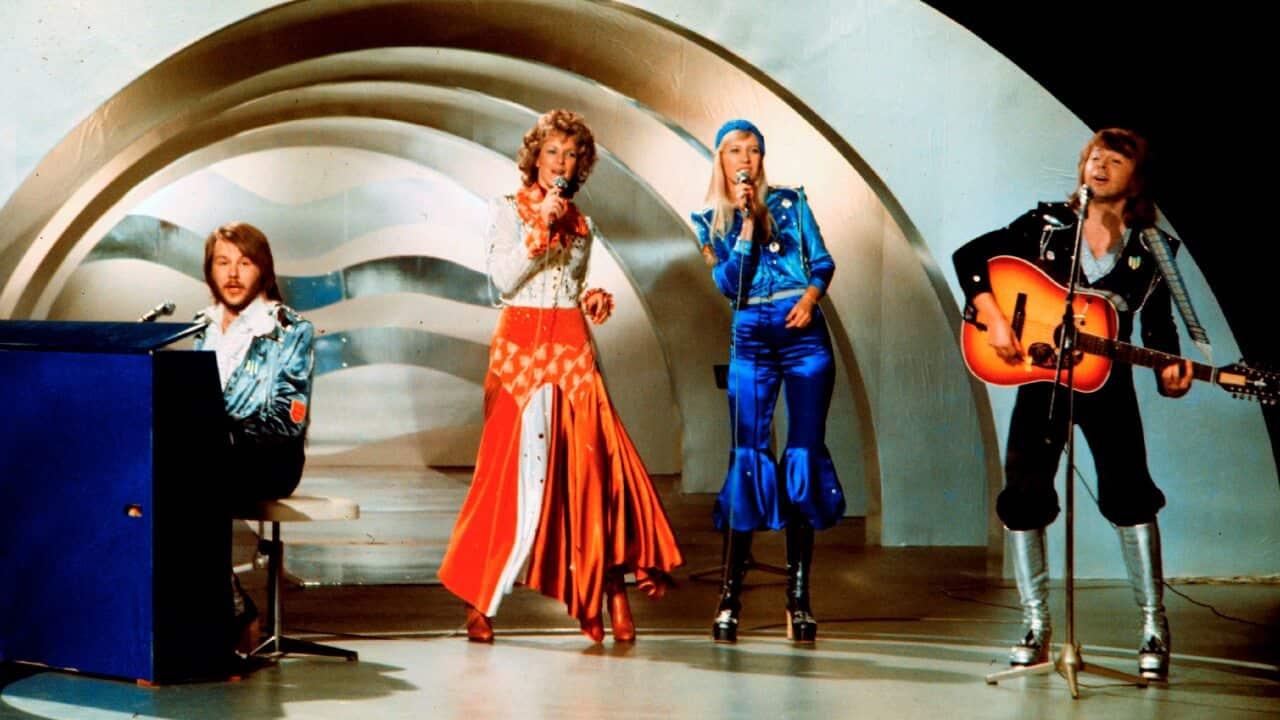Spoiler alert: This article contains details of the Eurovision grand final
Australia's Kate Miller-Heidke has stunned crowds at the 2019 Eurovision grand final.
Miller-Heidke took to the stage as the second-last contestant, flying through the air as she performed her intergalactic entry Zero Gravity - a song inspired by her experiences with post-natal depression.
Her now iconic crown was once again on full display.

Australian singer Kate Miller-Heidke at the Eurovision semi finals. Source: AAP
Miller-Heidke's performance has already received widespread praise, as she quite literally defied gravity, swaying side-to-side while balancing on a pole.
It was the moment fans in Australia have been waiting for, as hordes of die-hards braved the early morning to pack into the Hurstville Entertainment Centre - Aussie flags, dressing gowns and mimosas in abundance.
The 37-year-old Queenslander is up against performers from Malta, Albania, Czech Republic, Germany, Russia, Denmark, San Marino, North Macedonia, Sweden, Slovenia, Cyprus, The Netherlands, Greece, Israel, Norway, United Kingdom, Iceland, Estonia, Belarus, Azerbaijan, France, Italy, Serbia, Switzerland, and Spain.
Contestants had a strong competitor for the limelight, as superstar Madonna performed her 1989 hit Like a Prayer accompanied by a 35-strong choir.
Draped in a black robe and sporting a diamond-encrusted eye-patch, the 60-year-old occupied the state alongside backup dancers wearing horse-like masks and leather jumpsuits.
Following her 1989 hit, the 'Queen of Pop' debuted her new song, Future, from her forthcoming album.
But it's not all sparkles - the 2019 song contest has been one of the most political in recent memory.
, Israel secured this year's hosting rights - a decision met with some controversy.
A high-profile boycott campaign, spearheaded by Pink Floyd's Roger Waters, took off in the weeks leading up to the contest, urging artists to pull out due to Israel's treatment of Palestinian people.
Speaking to last Wednesday, Miller-Heidke said: "everyone felt conflicted".
“I’m pretty sure all the artists have been experiencing the same pressures, the same kind of Twitter extremism," she said.
The tensions were broadcast to the world when hackers succeeded in during the Israeli public broadcaster's online stream of the semi-final.
The coverage was interrupted by what appeared to be satellite imagery of Tel Aviv superimposed with graphics of a smoke plume appeared as an air raid siren and a message in English resembling an official military warning sounded.
KAN, the public broadcaster, has blamed Islamist group Hamas for the attack, describing their speed in taking down the fake warning as "Israel's quickest victory over Hamas in history".
"At a certain point, there was a takeover - apparently by Hamas - of our digital broadcast," KAN chief Eldad Koblenz said on Wednesday.
Despite heightened security concerns, Australians still flocked to the city .
“Considering the situation, what’s happened so far and the lengths people are going to to make things safe, I was happy to come, and feel safe while I’m here,” Eurovision fan Michael Polh told SBS News earlier this week.
“I’ve been here about a week, everything’s very normal I think, the people are lovely, the beaches are fantastic, and to come from Melbourne to sunny Tel Aviv, I’m getting a tan, I’m happy.”
The Eurovision Grand Final will be held on Sunday 19 May at 5am (AEST) with an 8pm (AEST) replay - both on SBS and .



